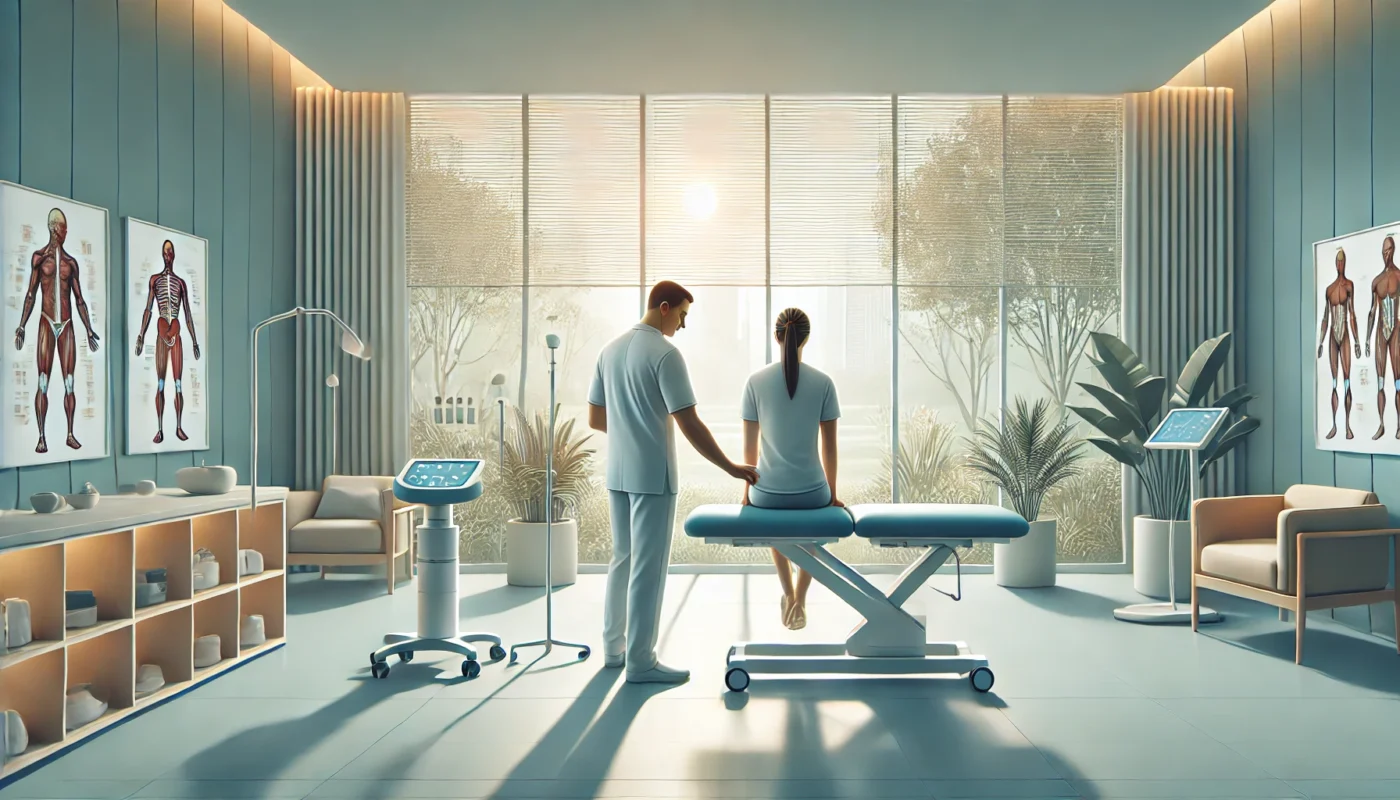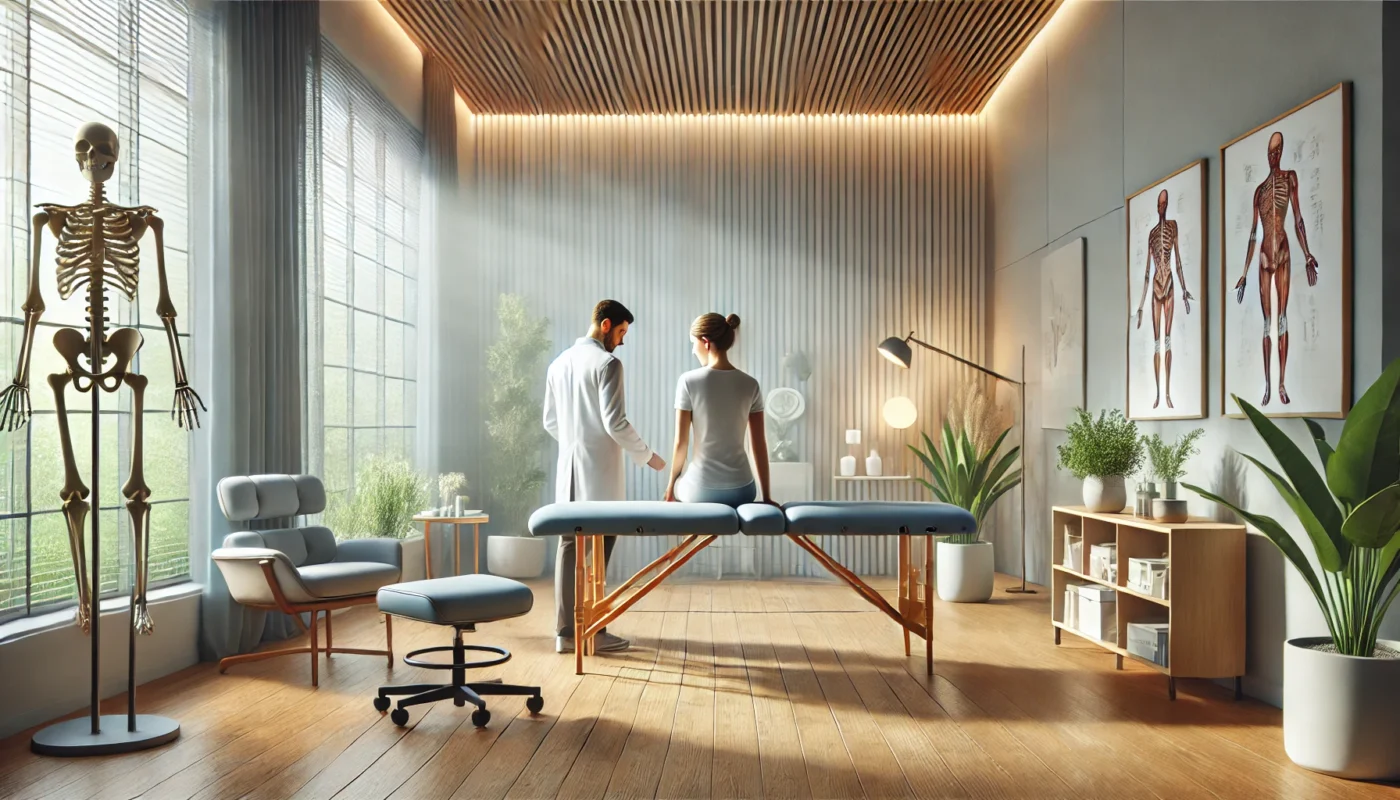Navigating the world of pain management can be daunting, especially when searching for the right clinic or doctor to address your specific needs. In Plano, Texas, several pain clinics offer a variety of services aimed at alleviating discomfort and improving quality of life. This article will provide insight into patient experiences at these clinics, focusing on the comprehensive approaches taken to manage pain effectively.
You may lso like: Techniques Used by Pain Management Specialists
Understanding Pain Management in Plano
Pain management involves a multidisciplinary approach to diagnosing, evaluating, and treating pain. In Plano, patients have access to a variety of specialists and clinics that offer both traditional and alternative therapies. The goal is to provide relief, enhance function, and improve the overall quality of life for those suffering from chronic pain conditions.
The Multidisciplinary Approach
The pain management landscape in Plano is characterized by a collaborative approach involving multiple healthcare professionals. This includes physicians, physical therapists, psychologists, and alternative medicine practitioners. Each specialist contributes a unique perspective and expertise, ensuring a holistic treatment plan that addresses all facets of the patient’s condition.
By integrating various disciplines, Plano pain clinics can tailor treatments to meet the diverse needs of patients. This approach not only addresses physical symptoms but also considers psychological and lifestyle factors that might influence pain perception and management.

Traditional vs. Alternative Therapies
Patients in Plano have the opportunity to explore a blend of traditional and alternative therapies. Traditional treatments often include medication and physical therapy, which are proven to alleviate pain and improve mobility. However, many clinics also embrace alternative therapies such as acupuncture, chiropractic care, and massage therapy.
The integration of these therapies is based on growing evidence supporting their effectiveness in pain relief. By offering a spectrum of treatment options, Plano clinics empower patients to choose therapies that resonate with their personal beliefs and preferences, enhancing the overall treatment experience.
Enhancing Quality of Life
The ultimate aim of pain management in Plano is to enhance the quality of life for those afflicted by chronic pain. This involves not only reducing pain intensity but also improving functional ability and emotional well-being. Clinics focus on helping patients regain control of their lives, enabling them to participate in daily activities with minimal discomfort.
Through comprehensive care plans, patients are encouraged to set realistic goals and track their progress. This proactive approach fosters a sense of accomplishment and motivation, contributing to better long-term outcomes and a more fulfilling life.
What to Expect from a Pain Management Doctor in Plano, TX
When visiting a pain management doctor in Plano, TX, patients can expect a thorough evaluation of their condition. These doctors are skilled at diagnosing the root cause of pain and developing personalized treatment plans. They may employ a combination of medications, physical therapy, and holistic approaches to address the pain comprehensively.
Comprehensive Evaluations
The initial consultation with a pain management doctor in Plano is a comprehensive process. Patients undergo a detailed assessment that includes medical history review, physical examination, and possibly diagnostic tests. This thorough evaluation is crucial in identifying the underlying causes of pain, allowing doctors to craft precise and effective treatment plans.
By understanding the patient’s complete medical background and lifestyle, doctors can better anticipate challenges and adapt their strategies accordingly. This level of detail ensures that the treatment plan is not only effective but also sustainable in the long term.

Personalized Treatment Plans
One of the key strengths of pain management doctors in Plano is their ability to create personalized treatment plans. These plans are tailored to the specific needs and preferences of each patient, incorporating a mix of therapies that target the root cause of pain.
Doctors in Plano often employ a combination of pharmacological interventions, physical therapy, and lifestyle modifications. This personalized approach ensures that patients receive comprehensive care that addresses both symptoms and underlying issues, leading to more effective pain management.
Innovative Techniques
In addition to traditional treatments, many pain management doctors in Plano are at the forefront of innovative techniques. These may include regenerative medicine, which uses the body’s own cells to repair damaged tissues, and cutting-edge interventions like spinal cord stimulation.
The use of such advanced techniques reflects the commitment of Plano doctors to provide the latest and most effective treatments. By staying abreast of medical advancements, they offer patients the best possible chance for pain relief and improved quality of life.
The Role of Pain Clinics in Plano
Pain clinics in Plano, TX, serve as centralized hubs for pain management. They bring together a team of specialists, including physicians, physical therapists, and alternative medicine practitioners, to offer a well-rounded approach to pain relief. These clinics emphasize patient-centered care, ensuring that each individual’s unique needs and preferences are considered in their treatment plan.
Collaboration Among Specialists
Pain clinics in Plano thrive on the collaborative efforts of diverse specialists. This multidisciplinary team works together to develop cohesive treatment plans that integrate different modalities. By pooling their expertise, these professionals can address complex pain conditions more effectively than any single practitioner could alone.
This collaboration extends beyond the clinic as well, with specialists often consulting with a patient’s primary care physician or other healthcare providers. Such comprehensive communication ensures continuity of care and maximizes the effectiveness of the treatment plan.
Emphasis on Patient-Centered Care
A hallmark of Plano pain clinics is their dedication to patient-centered care. Clinics prioritize understanding the unique circumstances and preferences of each patient, ensuring that treatment plans align with individual goals and lifestyles.
Patients are encouraged to take an active role in their care, participating in decision-making and setting personal health objectives. This empowerment fosters trust and collaboration between patients and healthcare providers, leading to more satisfying and effective treatment outcomes.
Comprehensive Treatment Offerings
Pain clinics in Plano provide a wide array of treatment options, catering to the diverse needs of their patients. Beyond traditional medical interventions, clinics offer services such as physical therapy, psychological counseling, and alternative therapies like acupuncture and yoga.
The availability of such comprehensive treatment options allows patients to explore various avenues of relief. Clinics often combine multiple therapies to create a balanced and holistic approach that addresses both physical and mental aspects of pain.

Patient-Centric Care at Plano Pain Clinics
A key component of the patient experience at Plano pain clinics is the focus on patient-centric care. This approach prioritizes the patient’s needs, preferences, and values in all aspects of their treatment. From the initial consultation to ongoing management, patients are encouraged to participate actively in their care, fostering a collaborative relationship between them and their healthcare providers.
Active Patient Participation
Patient-centric care in Plano pain clinics emphasizes active patient participation in the treatment process. Patients are encouraged to voice their concerns, preferences, and expectations, which are then integrated into their care plans. This involvement enhances the patient-provider relationship and ensures that treatment aligns with the patient’s lifestyle and goals.
By fostering open communication, clinics empower patients to take charge of their health. This active participation can lead to greater satisfaction with care and improved adherence to treatment recommendations.
Personalized Care Strategies
Plano pain clinics excel in crafting personalized care strategies that reflect the unique needs of each patient. These strategies involve customizing treatment plans based on individual health profiles, preferences, and response to therapies.
Clinics recognize that pain management is not one-size-fits-all and strive to adapt their approaches to suit each patient. This personalization ensures that patients receive targeted interventions that address their specific pain challenges, leading to more effective and satisfactory outcomes.
Building Trust and Collaboration
A cornerstone of patient-centric care is building trust and collaboration between patients and healthcare providers. Plano pain clinics prioritize creating an environment where patients feel heard, respected, and supported throughout their treatment journey.
By establishing strong relationships built on trust, clinics can better understand patient needs and deliver care that resonates with their values. This collaborative approach enhances patient satisfaction and contributes to more positive health outcomes.
The Integration of Holistic Therapies
Plano pain clinics are known for integrating holistic therapies into their treatment plans. These may include acupuncture, massage therapy, yoga, and meditation, which can complement traditional medical treatments. The use of such therapies is based on scientific research that supports their efficacy in reducing pain and improving overall well-being.
Acupuncture and Its Benefits
Acupuncture is a widely embraced holistic therapy at Plano pain clinics. This ancient practice involves inserting thin needles into specific points on the body to relieve pain and promote healing. Research supports acupuncture’s effectiveness in managing chronic pain conditions, making it a popular choice for patients seeking alternative treatments.
Patients often report reduced pain levels and improved function after acupuncture sessions. This therapy is valued for its minimal side effects and potential to enhance the effects of other pain management strategies.
The Role of Massage Therapy
Massage therapy is another integral component of holistic treatment plans in Plano. This therapy focuses on manipulating soft tissues to relieve tension, reduce pain, and promote relaxation. It is particularly beneficial for patients with musculoskeletal pain and those experiencing stress-related discomfort.
Massage therapy’s ability to enhance circulation and improve flexibility makes it a valuable addition to pain management regimens. It not only alleviates physical symptoms but also contributes to emotional well-being, offering a comprehensive approach to pain relief.
Yoga and Meditation for Pain Relief
Yoga and meditation are increasingly incorporated into pain management strategies at Plano clinics. These practices emphasize mindfulness, breathing techniques, and gentle movements to reduce pain perception and enhance relaxation.
Patients who engage in yoga and meditation often report improved mental clarity, reduced stress, and greater control over their pain. These therapies empower patients to actively manage their symptoms, promoting self-efficacy and resilience in the face of chronic pain.

Common Conditions Treated at Pain Clinics in Plano
Pain clinics in Plano address a wide range of conditions, including but not limited to:
- Chronic back pain
- Arthritis
- Fibromyalgia
- Migraines and headaches
- Neuropathic pain
- Post-surgical pain
Each condition is approached with a tailored treatment plan designed to target the underlying cause and provide lasting relief.
Chronic Back Pain Management
Chronic back pain is one of the most prevalent conditions treated at Plano pain clinics. Doctors employ a variety of strategies, including physical therapy, medication, and minimally invasive procedures, to address the underlying causes and alleviate symptoms.
Patients benefit from personalized treatment plans that consider the specific nature and severity of their pain. Through comprehensive care, individuals can achieve significant improvements in mobility and quality of life.
Arthritis and Joint Pain Solutions
Arthritis and joint pain are common complaints among patients seeking treatment at Plano clinics. Specialists use a combination of medication, physical therapy, and lifestyle modifications to manage inflammation and pain.
Innovative treatments such as joint injections and regenerative medicine offer additional options for relief. These strategies aim to enhance joint function and reduce pain, enabling patients to maintain an active lifestyle.
Fibromyalgia and Comprehensive Care
Fibromyalgia is a complex condition characterized by widespread pain and fatigue. Plano pain clinics offer comprehensive care plans that include medication, cognitive behavioral therapy, and exercise programs to address the multifaceted nature of this condition.
By targeting both physical and emotional symptoms, clinics help patients manage fibromyalgia more effectively. This holistic approach supports long-term management and improves overall well-being.
Success Stories from Plano Pain Clinics
Patients at Plano pain clinics often share their success stories, highlighting the effectiveness of their treatment plans. For instance, many have reported significant improvements in their quality of life after receiving a combination of physical therapy and acupuncture for chronic back pain. Others have found relief from migraines through a blend of medication management and relaxation techniques.
Transformative Back Pain Relief
One common success story from Plano pain clinics involves patients finding transformative relief from chronic back pain. Through a combination of targeted therapies, such as physical therapy, acupuncture, and chiropractic care, individuals report substantial reductions in pain and improvements in mobility.
These stories highlight the power of a comprehensive, multidisciplinary approach to pain management. By addressing the root causes and symptoms holistically, clinics can help patients reclaim their lives from the grip of chronic pain.
Migraines Managed with Innovative Therapies
Patients suffering from migraines often find hope at Plano pain clinics, where innovative therapies offer new avenues for relief. Success stories frequently feature individuals who have found significant reductions in migraine frequency and intensity through personalized treatment plans.
These plans may include medication, lifestyle modifications, and holistic practices like yoga and meditation. The integration of diverse therapies provides a well-rounded approach that tackles the multifaceted nature of migraines.
Fibromyalgia Patients Finding New Hope
For those living with fibromyalgia, Plano pain clinics offer a lifeline through comprehensive treatment plans. Success stories abound with patients who have achieved improved symptom management and quality of life through a blend of medication, therapy, and lifestyle changes.
These stories serve as a testament to the effectiveness of personalized, holistic care. By addressing both physical and emotional aspects of fibromyalgia, clinics empower patients to live more fulfilling, pain-free lives.
Choosing the Right Pain Management Doctor in Plano, TX
Selecting the right pain management doctor in Plano is crucial for achieving optimal outcomes. Here are some factors to consider when making your choice:
- Experience and Specialization: Look for a doctor who specializes in treating your specific condition and has a track record of success.
- Approach to Treatment: Consider whether the doctor offers a holistic approach, incorporating both traditional and alternative therapies.
- Patient Reviews: Read reviews from other patients to gain insight into their experiences and the quality of care provided.
- Communication Style: Choose a doctor who communicates clearly and listens to your concerns, ensuring a collaborative relationship.
Evaluating Experience and Specialization
When choosing a pain management doctor in Plano, evaluating their experience and specialization is paramount. Look for practitioners who have a proven track record in treating your specific condition. This expertise ensures that the doctor is well-versed in the latest treatments and can provide the most effective care.
Consider doctors who have advanced training or certifications in pain management. Such qualifications indicate a commitment to staying current with medical advancements and delivering high-quality care.
Assessing Treatment Approaches
A doctor’s approach to treatment is a critical factor in your decision-making process. Evaluate whether the practitioner offers a holistic approach that incorporates both traditional and alternative therapies. This versatility allows for more comprehensive and personalized care.
Discuss potential treatment options during your initial consultation to gauge the doctor’s openness to integrating various therapies. A flexible approach indicates a willingness to tailor care to your unique needs and preferences.
Importance of Patient Reviews and Communication
Patient reviews can offer valuable insights into a doctor’s quality of care and bedside manner. Look for consistent positive feedback regarding the doctor’s ability to listen, communicate, and involve patients in their care decisions.
Effective communication is essential for a successful doctor-patient relationship. Choose a doctor who takes the time to explain diagnoses, treatment options, and expected outcomes clearly. This transparency fosters trust and ensures you feel comfortable and informed throughout your treatment journey.
Practical Tips for Managing Pain at Home
In addition to seeking professional help, there are several strategies patients can implement at home to manage pain effectively:
- Stay Active: Engage in regular, low-impact exercise to maintain mobility and reduce stiffness.
- Mindfulness Practices: Incorporate meditation and deep-breathing exercises to manage stress and reduce pain perception.
- Healthy Diet: Follow an anti-inflammatory diet rich in fruits, vegetables, and omega-3 fatty acids to support overall health.
- Adequate Sleep: Prioritize restful sleep, as it is essential for healing and pain management.
Importance of Staying Active
Staying active is a cornerstone of effective pain management at home. Engaging in regular, low-impact exercise helps maintain joint flexibility, reduce stiffness, and improve overall physical health. Activities such as walking, swimming, or cycling are excellent choices for minimizing pain while enhancing mobility.
Incorporating physical activity into your daily routine can also boost mood and energy levels, contributing to better overall well-being. Always consult with your healthcare provider before starting a new exercise regimen to ensure it aligns with your specific condition and needs.
Mindfulness and Stress Reduction Techniques
Mindfulness practices, including meditation and deep-breathing exercises, play a significant role in managing pain perception and reducing stress. These techniques encourage relaxation and help shift focus away from pain, promoting a sense of calm and control.
Incorporating short mindfulness sessions into your daily routine can significantly impact your ability to cope with chronic pain. These practices enhance mental clarity and resilience, empowering you to manage pain more effectively.
Benefits of a Healthy Diet
A healthy diet is vital in supporting pain management efforts. Consuming an anti-inflammatory diet rich in fruits, vegetables, and omega-3 fatty acids can reduce inflammation and support overall health. Nutrient-rich foods provide the body with essential vitamins and minerals necessary for healing and pain reduction.
Maintaining a balanced diet also supports weight management, which is crucial for minimizing stress on joints and reducing pain levels. Consider consulting with a nutritionist to develop a diet plan that aligns with your health goals and dietary preferences.
Prioritizing Adequate Sleep
Adequate sleep is essential for effective pain management and overall well-being. Quality rest allows the body to heal, reduces inflammation, and improves mood and cognitive function. Establishing a consistent sleep schedule and creating a calming bedtime routine can enhance sleep quality and duration.
Addressing sleep disturbances is crucial for individuals with chronic pain, as poor sleep can exacerbate symptoms. Consider discussing sleep strategies with your healthcare provider to identify and address any underlying sleep issues contributing to your pain experience.
Conclusion
Pain clinics in Plano offer a wealth of resources and expertise for those seeking relief from chronic pain. Through a combination of traditional and holistic approaches, patients can experience significant improvements in their quality of life. By understanding the options available and choosing the right healthcare provider, individuals can embark on a journey toward pain-free living. Whether you’re a fitness enthusiast, health enthusiast, or medical patient, these insights can guide you in making informed decisions about your pain management journey.
Taking the First Step Towards Pain-Free Living
Embarking on a pain management journey in Plano begins with understanding your options and taking proactive steps towards better health. Engaging with experienced professionals who prioritize comprehensive care can set the foundation for effective pain relief and improved quality of life.
The Value of a Holistic Approach
The integration of traditional and alternative therapies in Plano pain clinics underscores the importance of a holistic approach to pain management. By addressing physical, emotional, and lifestyle factors, patients can achieve more balanced and sustainable relief.
Empowering Patients Through Knowledge
Empowered with the knowledge of available treatments and strategies, patients in Plano can make informed decisions about their care. This empowerment fosters confidence and motivation, encouraging individuals to take an active role in their health journey towards pain-free living.
Further Reading:
Interventional Medicine is an alternative to surgery using various options of treatment
Pain Management Services in Plano
pain management, chronic pain, holistic therapy, migraines, fibromyalgia, Plano pain clinics, patient care, treatment options, mindfulness, healthy diet, exercise, sleep management, patient empowerment, multidisciplinary approach, alternative therapies
Important Note: The information contained in this article is for general informational purposes only, and should not be construed as health or medical advice, nor is it intended to diagnose, prevent, treat, or cure any disease or health condition. Before embarking on any diet, fitness regimen, or program of nutritional supplementation, it is advisable to consult your healthcare professional in order to determine its safety and probable efficacy in terms of your individual state of health.
Regarding Nutritional Supplements Or Other Non-Prescription Health Products: If any nutritional supplements or other non-prescription health products are mentioned in the foregoing article, any claims or statements made about them have not been evaluated by the U.S. Food and Drug Administration, and such nutritional supplements or other health products are not intended to diagnose, treat, cure, or prevent any disease.

